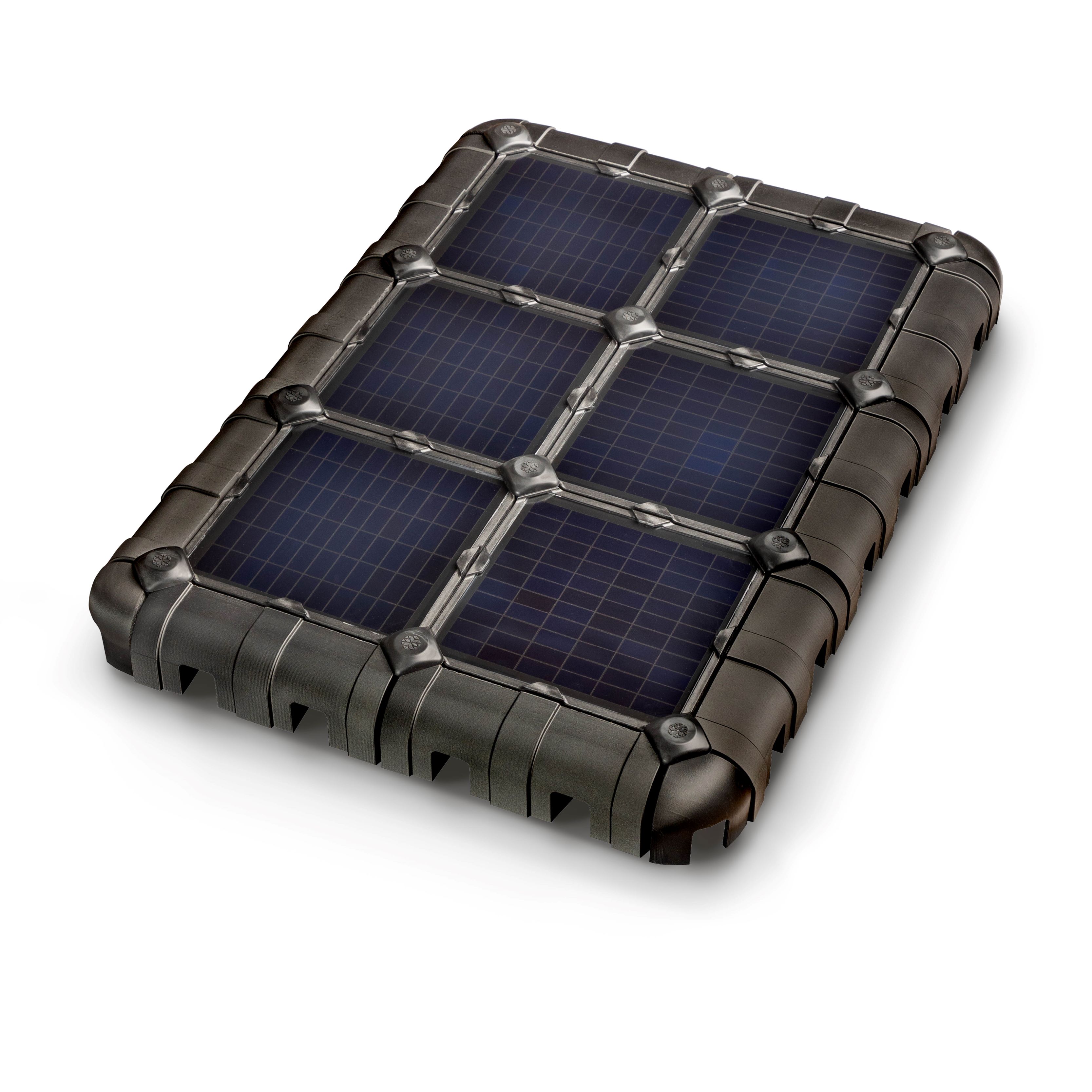AN AI-POWERED solar energy system for the marine industry could be manufactured using engineered lightweight fibre-reinforced thermoplastic composite materials which are lighter, cheaper and more sustainable than metal.
Manchester-based Grafmarine signed a Memorandum of Understanding (MOU) with AirGo Design, a leader in developing revolutionary lightweight technologies for demanding applications in various industries, including the world’s lightest battery pack packaging.
The two organisations entered a knowledge partnership that will test AirGo Design’s innovative engineered fibre-reinforced thermoplastic composites on Grafmarine’s state-of-the-art NanoDeck tiles, which capture, store and remotely manage clean energy while vessels are at sea.
The NanoDeck has been trialled by giants of the marine sector in the last 12 months, including SMT Shipping in the Caribbean, in Equatorial waters with Carisbrooke Shipping Ltd and in the South China Sea.
Grafmarine CEO Nigel Marc Roberts says they will evaluate and validate the Singapore company’s cutting-edge technology, with a view to full-scale manufacturing in the future.
“The NanoDeck system is already made from sustainable material, but in working with AirGo Design, we are targeting net zero,” said Nigel.
“We have used recyclable ocean plastics, and our mission is to be a pioneer in fully recyclable renewable energy, which is why we are carrying out further testing and aiming to lower our carbon footprint even further.”
AirGo Design’s CEO and co-founder Maziar Jahanshahi said: “AirGo is revolutionising marine, aerospace and automotive verticals by pioneering lightweight engineered Fibre-Reinforced Thermoplastic Composites and next-gen battery thermal runaway solutions that replace traditional composites and metal components, competitively utilising its AI-assisted Atlas simulation software platform.
“AirGo will be collaborating with Grafmarine in lockstep by providing turn-key engineering expertise to further optimise the NanoDeck system’s in-service reliability and maintainability.”
Grafmarine founder Martin Leigh added: “As well as the ‘green’ benefits of this amazing material, it is also super lightweight and 70% more affordable than using machined aluminium, which is a major USP when looking at mass production.
“It’s also more flexible and lends itself to our designs, as well as the decarbonisation targets of the maritime industry, which at present is responsible for up to 3% of global emissions.”
With more than 90% of global trade goods transported by sea, a volume set to increase significantly by 2050, the sector faces growing pressure to reduce carbon emissions.
Grafmarine aims to help meet these challenges by cutting fuel consumption, reducing operating costs and steering the sector toward its CO2 targets.
Engineering Director Chris Russell is confident the partnership with AirGo Design will provide both companies with opportunities to help meet these goals in the years ahead.
“Using this next-gen AI-enabled material lightweight solution will provide so many positives and chances for us to streamline our processes while lowering costs and our carbon footprint,” he said.
“We are excited to see how the relationship develops and look forward to working with AirGo Design to have a positive impact on decarbonising the global marine industry.”

